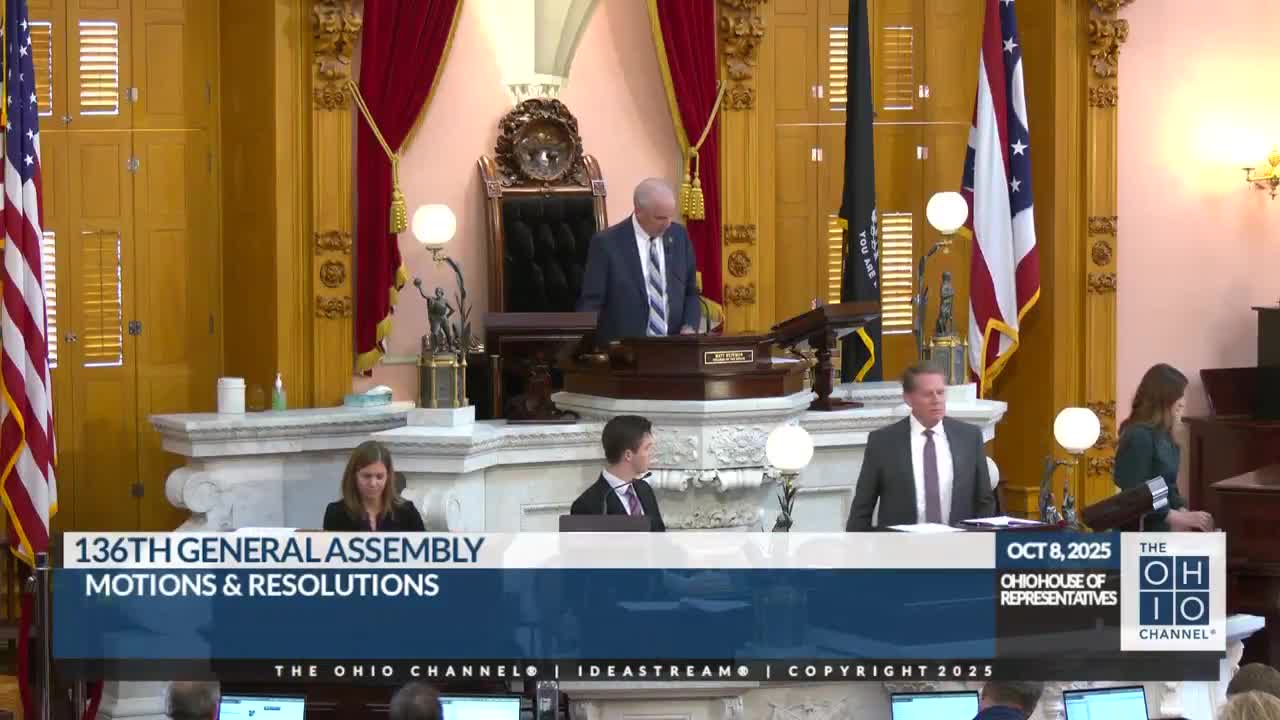Ohio House passes bill to adjust school levy calculations, aiming to limit unvoted property-tax spikes
Get AI-powered insights, summaries, and transcripts
Subscribe
Summary
The Ohio House on Oct. 8 passed substitute House Bill 129 to require certain levies be included in the calculation of a school district's 20-mill floor, a change sponsors say will limit sudden, unvoted tax increases in roughly one-third of districts.
The Ohio House of Representatives on Oct. 8 passed substitute House Bill 129, a measure that will change how some school levies are counted when determining a district’s 20-mill floor and aims to curb sudden, unvoted property-tax increases.
Supporters said the bill corrects a technical problem that contributed to sharp tax increases for some property owners. “This bill addresses a critical issue in our state system of school funding and taxing our residents,” Representative Romer said on the House floor, describing a recent case of an elderly widow who faced an unexpected tax spike. Romer said the change was recommended in the governor’s property-tax study commission and would give school districts “an additional runway to financially plan while still protecting taxpayers.”
The measure would require certain current-expense fixed-sum levies to be included in the calculation of a district’s guaranteed 20-mill floor. Sponsors described the change as correcting a prior override that created a gap allowing some levies to effectively push tax bills higher without voter approval. Representative Troy, while supporting passage, cautioned the bill is a partial fix: "It's more perfect than where it was a couple of weeks ago, but it's certainly not perfect yet," he said, and urged further work on more targeted relief such as expanding the homestead exemption or creating a circuit breaker.
Representative David Thomas, a bill backer, summarized the issue as the legislature undoing protections it had previously created: "House Bill 129 essentially corrects those exclusions, fixes loopholes that I can't blame our entities for using. We've created those rules...and it's only natural that our local governments...would use the regulations that we've set in place." Thomas said approximately 237 school districts—about one-third of the state—have seen property-tax spikes that this bill would address.
Opponents and some supporters noted limits to the bill’s reach. Representative Glassburn told colleagues the bill “is not the property-tax relief that our residents are asking for” and that about $100 million of relief tied to a prior override has been deferred by the measure. Members on both sides said more work will be needed in the Senate and via additional reforms to reach seniors and other households that remain exposed.
The House roll call showed 81 affirmative votes and 16 negative votes. With the required constitutional majority, the House passed the substitute bill and agreed to its title.
The measure now moves to the Senate for further consideration. No amendments adopted on the floor were recorded in the transcript.
